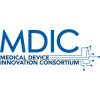The FDA Center for Devices and Radiological Health (CDRH) has announced new funding opportunities to support small businesses in developing innovative medical device development tools (MDDTs). The MDDT program was created in collaboration with the National Institutes of Health’s (NIH’s) National Institute of Drug Abuse (NIDA), National Institute of Dental Craniofacial Research (NIDCR) and National Cancer Institute (NCI) as a way for the FDA to qualify tools that medical device sponsors can use in the development and evaluation of medical devices.
It is used to facilitate regulatory decision making by supporting a safety, effectiveness or performance assessment of a medical device in a regulatory submission. Eligible small businesses are defined by the FDA as a business, including its affiliates, whose gross receipts and sales are less than $100 million for the most recent tax year.
Following are current funding opportunities closing in November 2022.
NIH/National Cancer Institute (available for small businesses through November 4, 2022.)
Software to Evaluate Artificial Intelligence/Machine Learning Medical Devices in Oncology Settings
NIH/National Institute of Dental Craniofacial Research (available for small businesses through November 9, 2022.)
Data-Driven Tools to Accelerate the Clinical Translation of Novel Dental, Oral, and Craniofacial Biomaterials
- RFA-DE-23-006: Data-Driven Tools to Accelerate the Clinical Translation of Novel Dental, Oral, and Craniofacial Biomaterials (R61/R33 – Clinical Trial Not Allowed) (nih.gov)
- RFA-DE-23-007: Data-Driven Tools to Accelerate the Clinical Translation of Novel Dental, Oral, and Craniofacial Biomaterials (R42 Fast-Track – Clinical Trial Not Allowed) (nih.gov)
- RFA-DE-23-008: Data-Driven Tools to Accelerate the Clinical Translation of Novel Dental, Oral, and Craniofacial Biomaterials (Fast-Track – R44 – Clinical Trial Not Allowed) (nih.gov)
NIH/National Institute of Drug Abuse (available for small businesses through November 14, 2022.)
Novel Drug (DDT) and Medical Device Development Tools (MDDT) for New Therapies for Substance Use Disorders (SUD)
- RFA-DA-23-019: Novel Drug (DDT) and Medical Device Development Tools (MDDT) to Help Expediate Creation and Regulatory Approvals of New Therapies for Substance Use Disorders (SUD) (R41/R42 Clinical Trial Optional) (nih.gov)
- RFA-DA-23-020: Novel Drug (DDT) and Medical Device Development Tools (MDDT) to Help Expedite Creation and Regulatory Approvals of New Therapies for Substance Use Disorders (SUD) (R43/R44 Clinical Trial Optional) (nih.gov))







